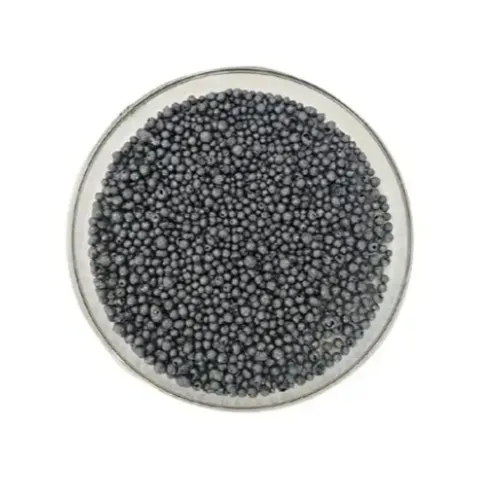Warning: Undefined array key "title" in /home/www/wwwroot/HTML/www.exportstart.com/wp-content/themes/1198/header.php on line 6
Warning: Undefined array key "file" in /home/www/wwwroot/HTML/www.exportstart.com/wp-content/themes/1198/header.php on line 7
Warning: Undefined array key "title" in /home/www/wwwroot/HTML/www.exportstart.com/wp-content/themes/1198/header.php on line 7
Warning: Undefined array key "title" in /home/www/wwwroot/HTML/www.exportstart.com/wp-content/themes/1198/header.php on line 7
- Afrikaans
- Albanian
- Amharic
- Arabic
- Armenian
- Azerbaijani
- Basque
- Belarusian
- Bengali
- Bosnian
- Bulgarian
- Catalan
- Cebuano
- China
- China (Taiwan)
- Corsican
- Croatian
- Czech
- Danish
- Dutch
- English
- Esperanto
- Estonian
- Finnish
- French
- Frisian
- Galician
- Georgian
- German
- Greek
- Gujarati
- Haitian Creole
- hausa
- hawaiian
- Hebrew
- Hindi
- Miao
- Hungarian
- Icelandic
- igbo
- Indonesian
- irish
- Italian
- Japanese
- Javanese
- Kannada
- kazakh
- Khmer
- Rwandese
- Korean
- Kurdish
- Kyrgyz
- Lao
- Latin
- Latvian
- Lithuanian
- Luxembourgish
- Macedonian
- Malgashi
- Malay
- Malayalam
- Maltese
- Maori
- Marathi
- Mongolian
- Myanmar
- Nepali
- Norwegian
- Norwegian
- Occitan
- Pashto
- Persian
- Polish
- Portuguese
- Punjabi
- Romanian
- Russian
- Samoan
- Scottish Gaelic
- Serbian
- Sesotho
- Shona
- Sindhi
- Sinhala
- Slovak
- Slovenian
- Somali
- Spanish
- Sundanese
- Swahili
- Swedish
- Tagalog
- Tajik
- Tamil
- Tatar
- Telugu
- Thai
- Turkish
- Turkmen
- Ukrainian
- Urdu
- Uighur
- Uzbek
- Vietnamese
- Welsh
- Bantu
- Yiddish
- Yoruba
- Zulu
Rgp . 04, 2024 02:36 Back to list
Understanding the Applications and Benefits of Inhibited Propylene Glycol in Various Industries
Inhibited Propylene Glycol An Overview
Inhibited propylene glycol is a modified form of propylene glycol, a versatile and widely used organic compound. Propylene glycol (PG), chemically known as 1,2-propanediol, is a colorless, odorless liquid with hygroscopic properties. Its primary applications span multiple industries, including food production, pharmaceuticals, cosmetics, and industrial applications. The concept of “inhibited” propylene glycol typically refers to the addition of various additives that enhance its performance and stability in specific applications, particularly in conditions where corrosion or degradation might occur.
The Importance of Propylene Glycol
Propylene glycol itself is recognized for its safety and non-toxicity, which makes it an ideal choice for many applications. In the food industry, it serves as a food additive (E1520) that helps in maintaining moisture, enhances texture, and serves as a solvent for flavors and colors. In pharmaceuticals, it is commonly used as a solvent for oral, injectable, and topical medications. Additionally, propylene glycol is widely recognized in cosmetics and personal care products due to its ability to retain moisture and enhance product stability.
Understanding Inhibition
The need for inhibited propylene glycol arises primarily from the challenges posed by environmental conditions, particularly temperature extremes, moisture, and potential interaction with metals. In industrial settings, equipment and machinery often operate under harsh conditions, leading to corrosion and degradation of materials. To combat these issues, various types of inhibitors can be integrated into propylene glycol formulations to enhance their performance
1. Corrosion Inhibitors These are chemical compounds added to propylene glycol to prevent corrosion and rust formation on metal surfaces. They form a protective layer on the metal, mitigating direct exposure to moisture and other corrosive elements.
2. Antioxidants To prolong the shelf life of propylene glycol and prevent its degradation due to oxidation, antioxidant additives are included. These compounds help to preserve the integrity of propylene glycol when exposed to oxygen and heat.
inhibited propylene glycol

3. Stabilizers Stability is crucial in application; hence, stabilizers are often employed to ensure that the properties of propylene glycol remain consistent throughout its use. They help mitigate the effects of temperature fluctuations and prevent phase separation in aqueous solutions.
Applications of Inhibited Propylene Glycol
Inhibited propylene glycol is essential in several applications, notably in HVAC systems, automotive applications (such as antifreeze and coolants), and industrial cooling systems. In these scenarios, it prevents freezing at low temperatures and inhibits corrosion within the system’s components.
In the food industry, where maintaining the quality and safety of products is paramount, inhibited propylene glycol protects against microbial growth during storage and transportation. In pharmaceuticals, the inhibition properties ensure that formulations maintain their efficacy over time, especially when exposed to varying environmental conditions.
Environmental Considerations
Given the growing awareness and regulatory considerations regarding environmental safety, the use of inhibited propylene glycol is often preferred over other synthetic glycols, such as ethylene glycol, which is more toxic. While propylene glycol is generally recognized as safe (GRAS) by the FDA, the inhibitors used must also adhere to environmental and health safety standards to protect consumers and ecosystems.
Conclusion
Inhibited propylene glycol stands as a testament to the importance of chemical modifications in enhancing the utility and safety of industrial and consumer products. By integrating inhibitors, manufacturers can provide solutions that perform reliably under adverse conditions, ensuring the longevity and performance of equipment, enhancing food safety, and preserving pharmaceutical efficacy. As research and technology advance, the formulations of inhibited propylene glycol will evolve, leading to even broader applications and improved sustainability in its use.
Latest news
-
Certifications for Vegetarian and Xanthan Gum Vegetarian
NewsJun.17,2025
-
Sustainability Trends Reshaping the SLES N70 Market
NewsJun.17,2025
-
Propylene Glycol Use in Vaccines: Balancing Function and Perception
NewsJun.17,2025
-
Petroleum Jelly in Skincare: Balancing Benefits and Backlash
NewsJun.17,2025
-
Energy Price Volatility and Ripple Effect on Caprolactam Markets
NewsJun.17,2025
-
Spectroscopic Techniques for Adipic Acid Molecular Weight
NewsJun.17,2025

